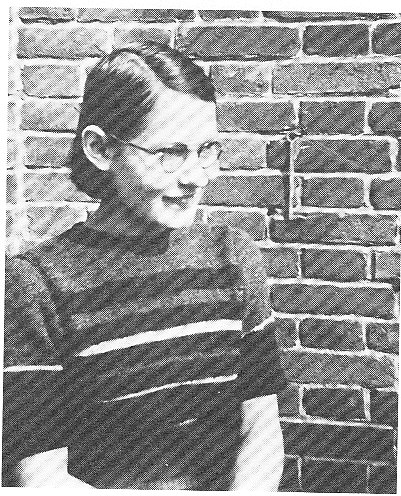Georgine Marie Sanders, known as Tineke Vroman to her friends, was born in Padang, Indonesia in 1921. She left to study medicine in Utrecht in 1938, where she was the only female Dutch-Indonesian student in her class. There she met and became engaged to Leo Vroman, but – being Jewish—he fled the Netherlands in May 1940 after its surrender to the Germans. Still a teenager, she did not leave with him. Wartime circumstances forced their continued separation for seven years, until they were reunited in September 1947 in the United States.
During the final year of their separation, Leo had settled in New York, but Tineke became increasingly concerned about his well-being and decided to join him as soon as she could arrange a visa and book passage. This meant terminating her medical studies nine months before she was due to complete her degree. Once they were together, she worked as an unpaid assistant alongside Leo in the research lab in New Brunswick, New Jersey. It is a well-known family account that – during this period – Tineke reported her observation that patients who had recently taken aspirin had much longer clotting times. Her supervisor said this was not part of the grant they were working on, and her observation went no further. The antithrombotic properties of aspirin were not widely exploited until the 1970’s.
The couple later moved back to New York City, where they raised their daughters. In 1979 Tineke obtained a PhD in medical anthropology from the New School and subsequently designed custom therapies for aphasia patients. In 1997, she and Leo retired to Fort Worth, Texas to be closer to their younger daughter. They continued to live lovingly together there for the remainder of their lives. However, the fact that they did not leave the Netherlands together in 1940 and were forced into a seven-year separation haunted them forever afterwards.
Georgine Sanders/ Tineke Vroman wrote poetry in Dutch and English. Her work was published in journals in the Netherlands, and collected in three volumes: Het onvoltooid bestaan (1990), Autogeografie (1995) and Een huis om in te slapen (2007). She wrote of the everyday, but significant, matters that comprise our lives– love, absence, memory, transience, family – and utterly without pathos and false sentiment.
“We find the personal above all in the poems themselves, in the pure, taut, lucid and yet (or perhaps precisely thereby) tender and often moving words of Georgine Sanders, who knows how to combine space and time in such a way that her past still seems to exist somewhere on earth.”
Commentary on Autogeography, 1995

Some of Tineke’s poetry is included in the Unpublished Works section
